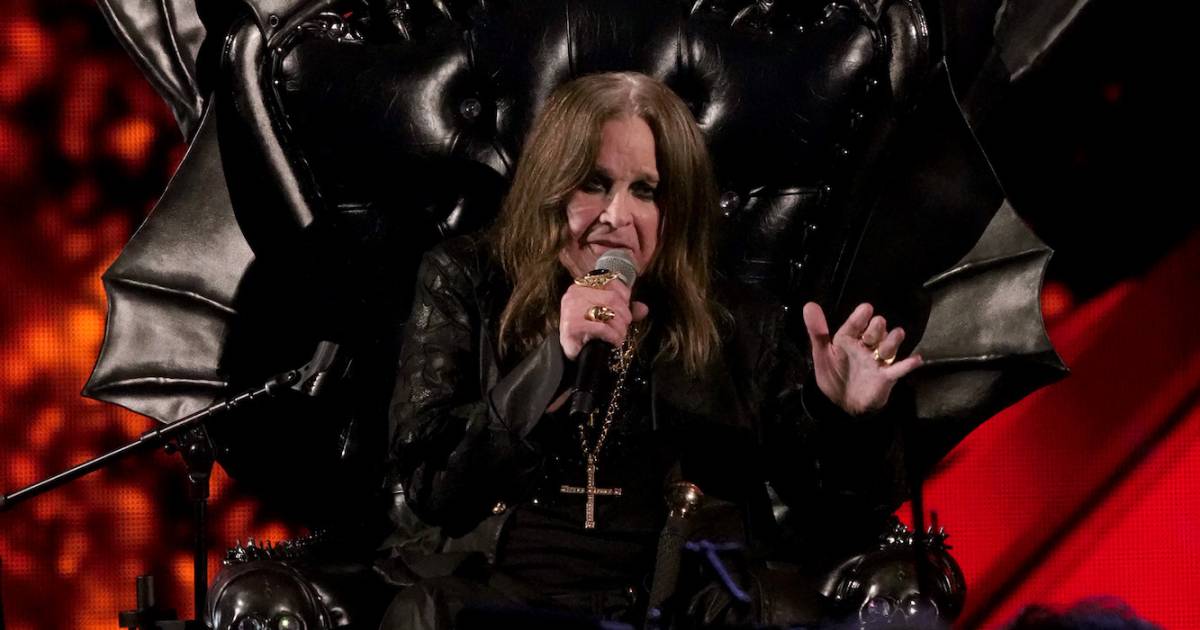Ozzy Osbourne’s Brave Battle with Parkinson’s: A Farewell to Black Sabbath
Rock legend Ozzy Osbourne has revealed the profound emotional and physical toll of his Parkinson’s disease diagnosis, reflecting on his final performance with Black Sabbath in 2017. The 75-year-old icon, known as the “Prince of Darkness,” shared his struggles with the progressive neurological disorder in a recent interview, emphasizing his resilience while acknowledging the end of an era for his legendary band. His story highlights the challenges of aging in the spotlight and the enduring impact of his music.
The Diagnosis and Its Impact on a Rock Icon
Osbourne first disclosed his Parkinson’s diagnosis in 2020, though he had been experiencing symptoms for years prior. Parkinson’s disease, a neurodegenerative disorder affecting movement and cognition, affects approximately 1 million Americans and over 10 million people worldwide, according to the Parkinson’s Foundation. For Osbourne, the diagnosis came after decades of high-energy performances, substance abuse battles, and multiple near-fatal accidents.
“It was like being hit by a truck,” Osbourne admitted. “You think you’re invincible until your body says otherwise.” Dr. Sarah Thompson, a neurologist specializing in movement disorders, explains: “Parkinson’s doesn’t discriminate—even someone with Ozzy’s legendary stamina faces the same physical hurdles. His openness helps destigmatize the condition.”
The Emotional Weight of Black Sabbath’s Final Bow
Osbourne’s last concert with Black Sabbath took place in their hometown of Birmingham, England, in February 2017. The band, pioneers of heavy metal, had embarked on their “The End” tour, unaware it would mark Osbourne’s final live performance with the group. “I knew something was wrong,” he recalled. “My hands wouldn’t cooperate. The crowd was roaring, but I felt like I was drowning.”
Despite his struggles, the show was a critical and commercial success, grossing over $80 million worldwide. Fans and critics praised Osbourne’s raw energy, though few realized the personal cost. “Looking back, it was a miracle he pulled it off,” said longtime collaborator Tony Iommi. “Ozzy gave everything—even when his body wouldn’t let him.”
Resilience in the Face of Adversity
Since stepping away from touring, Osbourne has focused on his health, family, and solo projects. He released his 13th solo album, Patient Number 9, in 2022, earning two Grammy Awards. “Music keeps me going,” he said. “It’s my therapy.” His wife and manager, Sharon Osbourne, added: “He fights every day. Parkinson’s won’t define him.”
Researchers note that Osbourne’s public battle raises awareness for Parkinson’s research, which has seen a 40% increase in funding since 2015. “Celebrities like Ozzy and Michael J. Fox shine a light on the urgent need for a cure,” said Dr. Alan Harper, a biomedical researcher.
The Legacy of a Musical Pioneer
Black Sabbath’s influence on rock music is immeasurable. The band sold over 70 million records worldwide and was inducted into the Rock & Roll Hall of Fame in 2006. Osbourne’s distinctive voice and theatrical stage presence set the standard for generations of musicians. “He’s the blueprint,” said Metallica’s James Hetfield. “Without Ozzy, metal wouldn’t exist.”
Yet Osbourne remains humble. “I never planned to be a legend,” he said. “I just wanted to make noise.” His authenticity resonates with fans, many of whom share their own stories of battling illness in online tributes.
What’s Next for Ozzy Osbourne?
While Osbourne has ruled out future tours, he continues to record music and participate in documentaries. His family’s reality TV show, The Osbournes, recently celebrated its 20th anniversary, introducing him to a new generation. “I’m not done yet,” he insisted. “I’ll keep creating until I can’t.”
For fans, his journey offers inspiration. “Ozzy taught us to embrace our flaws and keep fighting,” said music journalist Lisa Robinson. “That’s his greatest legacy.” As research advances, Osbourne remains hopeful: “Maybe one day, Parkinson’s won’t be a death sentence. Until then, I’ll keep rocking.”
Call to Action: To support Parkinson’s research, consider donating to the Parkinson’s Foundation or participating in local awareness events. Every contribution brings us closer to a cure.
See more The Buzz Live

